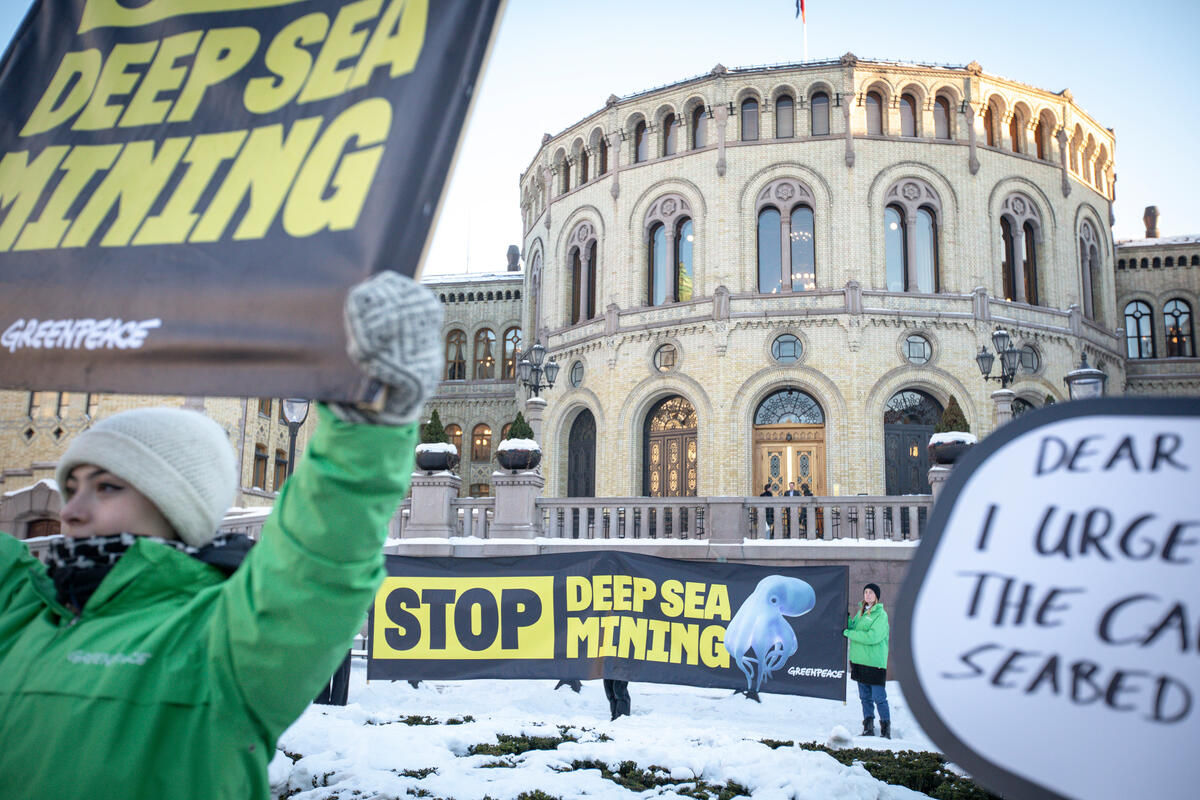An ask for short and long term climate goals in line with the 1,5C degree target, followed with an action plan.
The world is in the midst of a climate crisis that has already started to disrupt the world. To avoid the worst effects of this crisis, we urgently need to speed up the much needed transition from fossil fuels to renewables.
To get Equinor on the right track in this urgently needed transition, Greenpeace have together with WWF sent in a shareholder proposal to the Equinor AGM that we hope you will support at the upcoming AGM on May 10:
Equinor identify and manage risks and possibilities regarding climate, and integrate these in
the company’s strategy. The company sets targets and implements measures to reduce
greenhouse gas emissions over a short- and long-term period in line with the target to limit
global warming to 1.5 °C, and report to shareholders on progress against these targets. Targets and measures include the entire supply chain (scope 1, 2 and 3) and entails an
absolute reduction in greenhouse gas emissions.
Are you an investor in Equinor? Do vote for this proposal at the AGM of Equinor on May 10. If you have any questions, reach out to [email protected]
Our proposal comes as a response to the critique of Equinor’s climate plan, coming from a group of 18 investors, raising concerns about Equinor’s plan falling short of the globally established ambition to limit global warming to 1,5C degrees. Specifically, the investor group points towards Equinor’s lacking plan for reducing scope 3 emissions to net zero by 2050, in addition to raising questions about greenfield oil and gas exploration. This includes controversial fields, such as The Rosebank field in the UK, which is causing a lot of controversy for Equinor.
A concrete problem with the climate plan is the lack of concrete milestones
for how the company will achieve net zero by 2050. For example, it does not include a single
estimate for how much oil and gas the company is planning to produce in 2030 or 2050. But a recent report from Reclaim Finance suggests that Equinor’s planned oil and gas production in 2030 will be 61% higher than The IEA’s net zero scenario allows for.
Another problem with the plan is that Equinor’s climate targets are to reduce net carbon intensity by 20% by 2030, 40% by 2035 and to reach net zero by 2050. The challenge with a carbon intensity goal, instead of a target that shows a pathway for reduction in absolute emissions, is that it is easy for Equinor to reach the target by increasing production of renewable energy, or purchasing quotas and natural carbon sinks, while at the same time continuing to develop new oil and gas projects that go against the 1.5 °C target. The UN High-Level Expert Group on the Net-Zero Emissions Commitments recommends non-state actors to focus on absolute emissions across their whole supply chain, rather than on reducing their carbon intensity.
This proposal would also be the first step in getting Equinor in the right direction. It would also be in line with the newly adopted whitepaper on state owned companies in Norway, demanding that all state owned companies have science based climate goals that’s in line with the Paris agreement.



